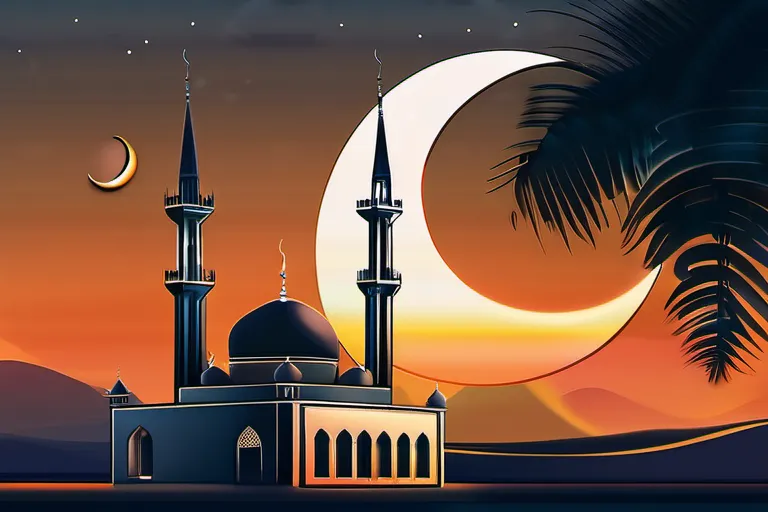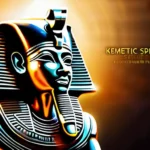Explore the Five Pillars of Islam, their significance, and how they differ from other major world religions.
Islam is one of the largest and fastest-growing religions in the world. Its unique practices and beliefs have captivated millions across the globe. In this article, we will delve into the Five Pillars of Islam and discuss how they differ from other major world religions.
The Five Pillars of Islam
The Five Pillars of Islam are like the bedrock of a house, providing stability and structure to the faith. These five essential practices are not just religious obligations but also form the core identity of Muslims in their daily lives. How do they differ from other major world religions? Let’s dive into this fascinating exploration.
Firstly, Faith, or Iman, is the foundation upon which everything else rests. Just like a tree needs roots to grow strong, Muslims need faith to flourish in their spiritual life. While other religions may have similar concepts of belief and devotion, Islam emphasizes the importance of declaring one’s faith publicly with the Shahada. This declaration is more than just a verbal affirmation; it’s a transformative act that changes not only your perspective but also your social standing within the Muslim community.
The second pillar is Salat, or prayer. Imagine praying as a form of communication with God, much like how you might call a friend to share your thoughts and feelings. In Islam, five daily prayers are obligatory, serving as a regular reminder of one’s connection with the divine. Unlike other religions that may have less frequent communal prayers, this constant interplay with the spiritual realm is integral in shaping the Muslim’s personal and collective identity.
Zakat, or charity, represents not just an act of giving but a means to balance wealth within society. It’s like a garden where everyone contributes to nurturing the growth of others, ensuring that no one is left behind. Unlike other religions that may have different practices for almsgiving, Zakat’s structured and obligatory nature highlights Islam’s emphasis on social justice.
Siyyam, or fasting during Ramadan, is a unique practice that demands discipline and self-control. Fasting during daylight hours can be likened to a marathon where the body and soul run together, pushing beyond their limits for a common goal. This act of abstinence isn’t just about going without food; it’s a spiritual journey of purification and reflection.
The last pillar is Hajj, or pilgrimage to Mecca. It’s a once-in-a-lifetime obligation that unites Muslims from all over the world in a shared religious experience. Think of Hajj as climbing the highest mountain where everyone stands at an equal altitude, transcending social and economic differences. This pilgrimage symbolizes unity and submission to God, offering a profound spiritual transformation.
Each of these pillars is a unique facet of Islam’s mosaic, providing a rich tapestry that distinguishes it from other belief systems. Whether through faith, prayer, charity, fasting, or pilgrimage, Muslims find their way in the world, not just as individuals but as part of a broader community. These practices are more than religious duties; they are life-affirming acts that shape a person’s identity and purpose.
Shahada: Faith
The Shahada, often translated as ‘testimony’ or ‘witness,’ is the Islamic declaration of faith. It is more than just words on a page; it’s a profound statement that encapsulates one’s entire relationship with Allah and the Prophet Muhammad. By reciting ‘There is no god but Allah, and Muhammad is the messenger of Allah,’ Muslims affirm their belief in the singular divinity of God and the prophetic role of Muhammad.
Imagine the Shahada as a key that opens the door to Islamic faith. It’s not just about accepting these statements intellectually; it’s about embracing them with your heart, mind, and soul. This declaration is the first and most fundamental pillar, laying down the foundation for all other practices in Islam.
How does the Shahada stand out from other religious declarations? In Christianity, the Nicene Creed serves a similar purpose but includes multiple affirmations about the nature of God and Jesus Christ. Judaism, with its emphasis on monotheism, has the Shema Yisrael, which focuses more on loving and obeying God. The uniqueness of the Shahada lies in its simplicity yet profound depth, making it both accessible and transformative.
By reciting this declaration, Muslims commit to a life guided by the teachings of Islam. It’s like planting a seed that will grow into a tree of faith, with each act of worship nourishing it further. The Shahada is not just something you say once; it’s a continuous affirmation of one’s belief and commitment.
Understanding the Shahada is crucial for anyone interested in exploring or deepening their knowledge of Islam. It’s more than just a statement of belief—it’s a lifelong journey of discovery, faith, and devotion.
Salat: Prayer
Imagine walking through a bustling marketplace, where the sounds of commerce and conversation blend into a symphony of human activity. Now, picture yourself in a quiet mosque, the only sound being the adhan, the call to prayer that echoes across the sky. These two scenes may seem vastly different on the surface, but they both speak to something fundamental about our shared humanity—our need for connection and purpose.
In Islam, Salat (prayer) serves as a bridge between these worlds. It is more than just a ritual; it’s a dialogue with the divine, a conversation where you can share your hopes, worries, and gratitude. The five daily prayers are like stepping stones that help us stay grounded in our faith while navigating life’s turbulent waters.
Unlike some other religions where prayer might be reserved for special occasions or times of crisis, Salat is integral to everyday life. Muslims pray at specific times during the day: dawn (Fajr), noon (Dhuhr), afternoon (Asr), sunset (Maghrib), and evening (Isha’). Each prayer is a moment of pause in the constant flow of daily activities, a chance to pause, breathe, and reconnect with the One.
The practice of Salat differs from other religious practices in several ways. In Christianity, for example, communal worship on Sundays holds significant importance, but personal prayer can vary in frequency and form. Similarly, in Judaism, daily prayers are also integral to life, much like Islam, but the structure and specific times may differ.
What makes Salat unique is its emphasis on discipline and consistency. Just as a plant needs water and sunlight to grow, Muslims believe that their spiritual growth relies on consistent prayer. This regularity in Salat instills a sense of routine and purpose into one’s day, much like how daily exercise can become a cornerstone of physical fitness.
Through Salat, we also learn humility and gratitude. As we bow down before Allah, we are reminded of our place in the grand scheme of things—a small part of an immense creation. This act of submission and worship is both personal and communal, creating a bond among believers that transcends geographical boundaries.
In essence, Salat in Islam is not just about fulfilling obligations; it’s about building a relationship with the divine, finding peace in chaos, and ensuring that our daily lives are not just lived but also dedicated to the betterment of ourselves and society. It’s like planting seeds that eventually grow into towering trees, providing shade and sustenance for all who seek them.
Zakat: Charity
Imagine walking through a crowded bazaar where everyone carries their own burdens, some heavy, others lighter. Now, picture yourself carrying two bags: one filled with necessities and another brimming with excess. What would you do? You’d start by giving away some of your extra to those in need, right? This is the essence of Zakat, a pillar of Islam that emphasizes sharing wealth for social justice.
Zakat is not just about giving; it’s an act of cleansing and purifying one’s soul. It’s like spring cleaning, where you sort through your belongings and donate what you no longer need. But why only 2.5%? Think of it as a small price for entry into a community that values equity and fairness.
How does Zakat differ from other religious practices of charity? In Christianity, there’s almsgiving, but the focus can sometimes be on specific individuals or events like Christmas giving. Judaism also has tzedakah, which is about righting wrongs through charitable acts, but it often involves a direct exchange or transaction. Meanwhile, in Hinduism, Daan (charity) is part of one’s dharma (duty), yet it can be given to temples or religious figures.
The beauty of Zakat lies in its universality and systematic approach. Unlike other practices that might focus on personal acts, Zakat ensures a structured method of wealth redistribution. It addresses inequality by ensuring a portion of the community’s wealth is used to support those less fortunate. This makes it more than just an act of kindness; it’s a fundamental aspect of social welfare in Islam.
Moreover, Zakat encourages mindfulness and self-reliance. When you give away 2.5% of your savings, it reminds you that everything comes from God and must be shared. It’s not about hoarding wealth but recognizing the interconnectedness of humanity and our responsibility to each other.
In a world where disparities often seem insurmountable, Zakat offers a practical solution. It’s like a gentle reminder that we’re all in this together, and by lifting others, we can all thrive. So, next time you find yourself with extra resources, consider the impact of giving just a little bit to those in need—your community might thank you, but more importantly, your soul will feel lighter.
Sawm: Fasting
Sawm: Fasting during Ramadan is more than just abstaining from food and drink—it’s a profound journey of self-purification and spiritual reflection. Imagine fasting as a metaphor for cleansing a sacred space; it’s like sweeping away the dust and clutter to create a clean slate, ready for new beginnings.
Ramadan, the holy month named after Sawm, is not just about physical hunger or thirst. It’s a time when Muslims abstain from dawn till dusk from all forms of bodily desires—eating, drinking, smoking, and even sex. But why such strictures? Could it be that by denying ourselves these basic needs for a period, we gain a deeper appreciation and empathy for those who are less fortunate?
While fasting is practiced in other religions as well, the way Islam approaches it is uniquely structured around self-discipline. In Christianity, Lent involves fasting but often includes specific religious practices like prayer and almsgiving. Similarly, Judaism has Yom Kippur, a day of fasting for atonement, yet it’s not the same as Ramadan in terms of duration or societal impact.
The significance of Sawm goes beyond personal discipline. It fosters unity among Muslims worldwide through shared experiences, creating bonds that transcend geographical and cultural divides. Fasting during Ramadan is like participating in a global marathon where every step, no matter how small, contributes to the journey toward spiritual growth and communal responsibility.
Hajj: Pilgrimage
Imagine standing at the gateway to Mecca, the spiritual heart of Islam. The Hajj, the Islamic pilgrimage, is not just a journey; it’s a profound act of worship and remembrance. Why do millions make this arduous trip? What makes the Hajj so significant in the lives of Muslims?
The Hajj is a journey that every able-bodied Muslim must undertake at least once in their lifetime. It’s like a grand symphony, with each participant playing a role in this timeless ceremony. From the moment pilgrims enter Al-Masjid Al-Haram, the sacred mosque in Mecca, they are enveloped by a sense of unity and purpose.
In many ways, the Hajj mirrors other religious pilgrimages but with unique elements. For instance, in Christianity, pilgrims often visit holy sites like Jerusalem or Rome. However, the Hajj is more than just visiting sacred places; it’s a reenactment of Prophet Abraham’s journey and submission to God’s will.
During the Hajj, Muslims perform rituals that symbolize the faith and unity of humanity before God. The Tawaf, circling the Kaaba, is like walking around a beacon of faith, reminding pilgrims of their commitment. The Stoning of the Devil (Rami al-Jamarat) symbolizes the rejection of evil forces that tempt us away from our path.
Compared to other pilgrimages, such as the Christian pilgrimage in Jerusalem or the Hindu Kumbh Mela, the Hajj stands out for its strict adherence to ritual and its universal appeal. While pilgrims at the Kumbh Mela come together for a festival of faith and celebration, the Hajj is more focused on individual devotion and communal worship.
The Hajj transcends cultural and linguistic barriers, bringing people from diverse backgrounds under one roof, making it a true representation of Islam’s message of brotherhood and unity. It’s a journey that reshapes lives, reminding us of our shared humanity and our commitment to the path of righteousness.
So, as pilgrims return from their Hajj, they carry with them not just souvenirs but a renewed sense of purpose and dedication to their faith. The Hajj is more than just a religious duty; it’s an experience that leaves an indelible mark on the heart.
Conclusion
 By understanding the Five Pillars of Islam and their distinctions from other beliefs, we can gain a deeper appreciation for the richness and diversity of religious practices worldwide.
By understanding the Five Pillars of Islam and their distinctions from other beliefs, we can gain a deeper appreciation for the richness and diversity of religious practices worldwide.











